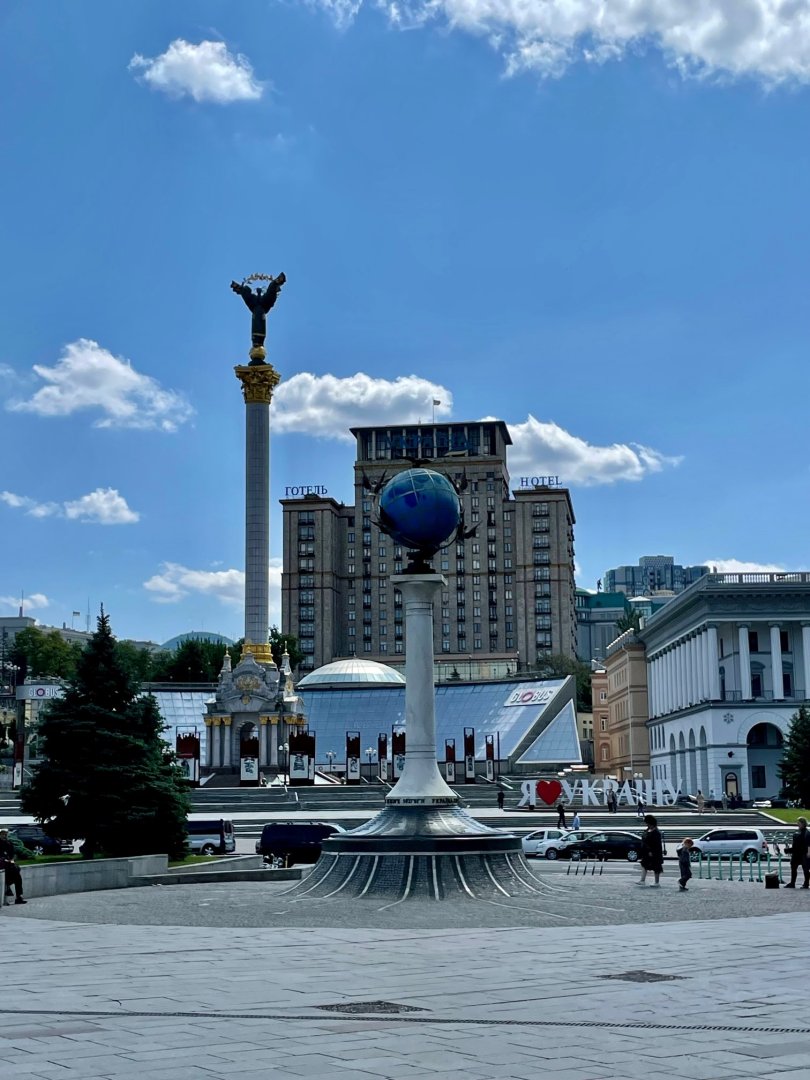
Ukraine
Return to Kyiv
Gohar Khodjayan reflects on memories, war and changes during a recent visit to the city of Kyiv
I am of Armenian descent and have lived in Denmark for more than 21 years. But there’s a place in my heart for another special country; ever since I started working with Ukraine and got to know the hospitality of Ukrainians, their language, music, culture and – most important – love and passion for freedom, Ukraine feels like another home away from home, and I have even contemplated moving there in the past.
It has been more than a year since my last visit, and I have been looking forward to being able to, eventually, reconnect with partners and friends – and witness the impact of the war with my own eyes. Every single day, Ukrainians pay a high price for the right to live in an independent country, a country which has chosen a path towards EU integration. I admire their tenacity.
Recently, more than 16 months since Russia’s full-scale invasion, I finally found myself with a train ticket to Kyiv – the only possible way to travel these days. With the wheels clicking steadily on steel tracks I was reminded of childhood train trips from Armenia to the Black Sea. Only this time I was not travelling to enjoy the beach.
I went to a country at war, with air raid sirens going off almost every night. I experienced some of the terror that Ukrainians live through on a day-to-day basis.
To me it felt less like returning to a familiar place and much more like a journey into the unknown, which is exciting and terrifying at the same time.
Every morning at the hotel and out on streets I would listen to people discus events of the previous night. How many rockets? Where did they strike? Any injured? I believe I witnessed a routine feature – albeit a scary one in all its normality.
Kyiv has changed. And it has not changed. Yes, you see people smiling and enjoying life, but I also saw many a face reflecting a person deep in their own thoughts, probably preparing for what the day and the following night will bring. I sensed a silence, a pain that I suspect every single citizen carries inside because of the war, and I wonder if more Ukrainians have made plans for the victory day than for tomorrow.
During my week in Ukraine, I had meetings in the cities of Kyiv and Lviv. I had a chance to drive through the country from Kyiv to the western part of Ukraine, through many regions that carried scars of war: endless boulders and check points, soldiers, ruined buildings and even remains of missiles.
In my talks with journalists, editors and media organisations, several recurring themes came up:
Ukraine suffers from a huge lack of journalists: many people (especially women) left the country, while many men journalists are serving the country at the frontline as soldiers or as territorial defence. Another challenge is that some journalists are leaving the profession due to burnout and trauma. IMS’ focus on supporting the mental wellbeing of media workers was lauded. Quite a number stated that this is a huge issue in Ukraine and there should be an even greater focus on mental health and psychosocial support.
Another challenge is finding good investigative journalists, who are needed for documenting not only war crimes and corruption but also for the post-war recovery process. That made me think that perhaps the time has come to broaden our focus and help bring forward a new generation of investigative reporters to address the need. IMS partner Hromadske has already taken steps and succeeded in establishing a Department of Investigative Journalism.
In the autumn, massive missile strikes on Ukraine’s energy infrastructure put serious restrictions on the work of most partners. The absence of electricity supplies and internet connections affected journalists’ ability to work and undertake investigations, and it became harder to communicate and establish contacts with sources. From October 2022 to February 2023, most Ukrainians had around two-to-three hours of continuous electricity. People, including journalists, were forced to spend more time on life’s basic needs, not on work.

As of the spring and early summer of 2023, the situation in most newsrooms has improved due to the purchase of energy supply devices (charging stations, generators, Starlinks, autonomous fiber-optic internet, etc.).
For me, it was still the same lovely megapolis where I enjoy my morning runs around parks and snap photos of colourful murals on walls. However, I did feel a change and this change was probably not only in Kyiv.
Both the city and I had a very harsh spring of 2022 and were faced with challenges to overcome. I was diagnosed with a grave illness and Kyiv was attacked. So, we both had to fight evil and difficulties. I am happy that I had this chance to go back and meet friends, colleagues and partners and share their daily lives – at least for one week – and give them my support. I have confidence that we will overcome all challenges.




